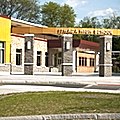- By Mary Grainger
- Around Town
 Print
Print  As the last bell rings, dozens of Ithaca High School students, coats and book bags in hand, pack themselves into English teacher Jeffrey Miller’s classroom and settle into desks. A student officer leads the group in a discussion about recent news of Hopi Indian masks being auctioned despite opposition from tribe members. Over the next hour, students voice a range of moral and legal arguments, citing historical cases dealing with cultural identity, imperialist powers, gender and racial minorities, affirmative action, and poverty.
As the last bell rings, dozens of Ithaca High School students, coats and book bags in hand, pack themselves into English teacher Jeffrey Miller’s classroom and settle into desks. A student officer leads the group in a discussion about recent news of Hopi Indian masks being auctioned despite opposition from tribe members. Over the next hour, students voice a range of moral and legal arguments, citing historical cases dealing with cultural identity, imperialist powers, gender and racial minorities, affirmative action, and poverty.This is just one example of the types of topics I.H.S. students research and discuss during weekly meetings of the Model United Nations club. The group of nearly 60 students simulates the work of UN ambassadors, debating issues on the UN agenda involving peace and security, human rights and global health. This year, students have studied gun control, obesity and the Ukraine crisis.
Model UN prepares students to compete at conferences across the state, funded in part by an Ithaca Public Education Initiative (IPEI) Red and Gold Grant. IPEI Red and Gold Grants are awards to teachers, administrators, students and community members for projects that strengthen and enrich Ithaca schools. April 21 is the next deadline for Red and Gold Grant application submissions; the awards of up to $500 are announced within two weeks.
“The IPEI grants have been instrumental in allowing I.H.S. students with limited resources to attend and participate in Model United Nations conferences across the state,” said Miller, the club’s advisor. “Our club is dedicated to ensuring that a member's access to activities is never jeopardized. As a result, our club is distinctively diverse and inclusive, and is also close-knit.”
I.H.S. students are among 25,000 students in 20 countries who participate in Model UN conferences. This year, I.H.S. students have attended two conferences, and a third is scheduled for later this spring. In March, 15 out of 34 Ithaca “delegates” received awards for debating political, economic and environmental topics at a Rochester conference.
“I am definitely more informed about the world,” said Erika Uchigasaki, a senior and the club’s president. Uchigasaki has been a Model UN member since she was a freshman and plans to pursue a career in international relations. “This club helps you broaden your perspectives.”
Uchigasaki said that being a part of the club’s diverse community of students has helped her grow. “It’s a different experience from a normal classroom where we’re always surrounded by students in the same grade level and with the same level of thinking. In Model UN, I’ve learned to lead students from all grade levels and ethnic backgrounds.”
“I’ve definitely gained good speaking and communication skills,” Uchigasaki added. “Before Model UN, I was usually the one sitting to the side and listening attentively. As president, I’ve learned how to delegate responsibility and communicate better with students and advisors. It’s really helped me with activities outside of school, too.”
“Through the grants provided by IPEI, we have been able to help students engage in debate, collaboration, and problem solving,” Miller said. “The skills that the students build through Model United Nations are valuable in the classroom and also provide them with a solid foundation for success in their future endeavors.”
v10i14



